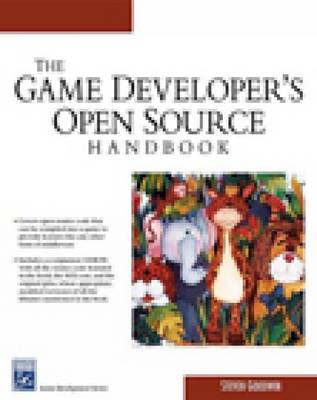With the cost of game development increasing regularly, studios are looking for innovative ways to reduce their budgets without compromising quality. At the same time, developers are looking toward more complex and customizable software, tools, and libraries to build truly next-generation games. These goals have traditionally been mutually exclusive, but open source software can solve both problems by providing game developers with free, high-quality tools and libraries for every aspect of the development process. Graphics, audio, physics, networking, and movie playback code are all available for the taking; developed, written, tested, and ready to use. This software is complemented by a wide range of end-user tools for both the programmer and artist including graphic editors, IDEs, MIDI sequencers, and 3D editors. The Game Developer's Open Source Handbook uncovers this world of open source software and teaches management and game developers what code is available, where to get it, how to incorporate it into existing processes, and, most important, how to adhere to the license agreements for redistribution.
The book is for all game developers, especially the "Indies," who want to use the wealth of free software in their own games to help increase the scope of the technology available and reduce the fi nancial burden. Members of the Linux fraternity will also fi nd it a useful insight into the methods by which these libraries can be applied into constructing a game. In addition, the book will be required reading for the producers and systems analysts of game studios who want to see the big picture. This must-have resource introduces a new world of software, and a new way of developing games for the 21st Century.
- ISBN13 9781584504979
- Publish Date 23 October 2006
- Publish Status Out of Print
- Out of Print 9 March 2017
- Publish Country US
- Publisher Cengage Learning, Inc
- Imprint Charles River Media
- Pages 350
- Language English
